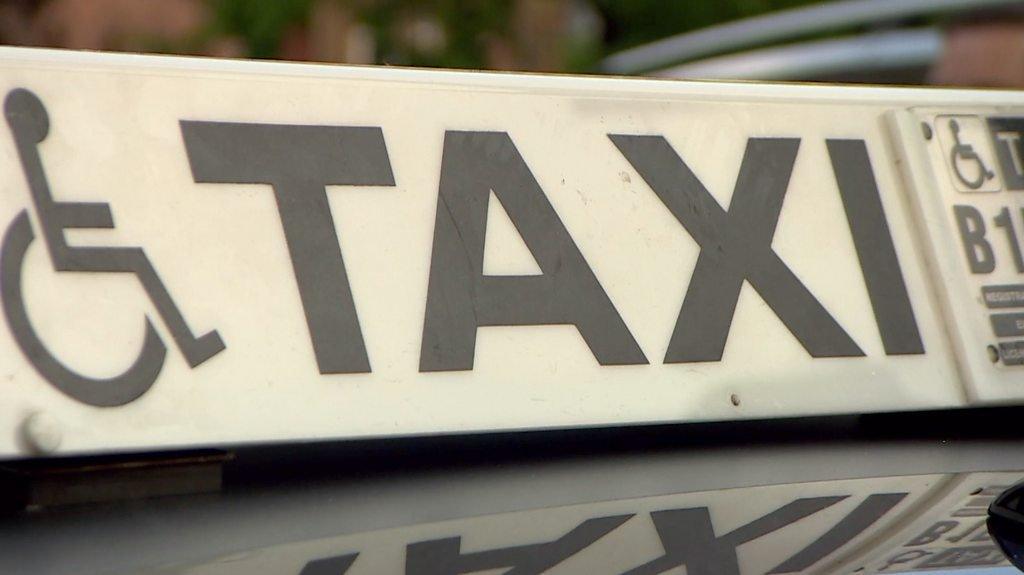Taxis: Northern Ireland firms unable to meet demand
- Published
- comments
The coronavirus pandemic has exacerbated the shortage of taxi drivers, say cab firms
Taxi firms have said a shortage of new drivers, combined with people leaving the industry, has left them unable to meet demand.
Official figures show the number of registered taxi drivers in Northern Ireland has fallen by a third in five years.
The pandemic has exacerbated the issue, BBC News NI has been told.
Northern Ireland's largest taxi firm said it has 400 fewer drivers compared to before the pandemic.
Stephen Anton, communications manager at Fonacab, said there needs to be more incentives for drivers to join the sector.
"Now that we have come out of lockdown the amount of bookings has grown more rapidly than the amount of drivers returning.
"Some drivers have yet to return and we've had some say they'll wait for their second jab or for social-distancing rules to be relaxed."
'Restart package needed'
He added: "Others have left the industry and have just retired, while some have gone to different driving jobs or where they could find the work.
"The major issue is at the weekends because demand is higher and because we aren't seeing a leap in drivers working. It's a stretch to cover the work that is there.
"I think from a public perspective, it's a little bit embarrassing. We are the biggest taxi firm and whenever we can't do what our customers expect from us we are as disappointed as they are.
"We would like to see some sort of restart package to either help drivers back into the industry or to make it easier for drivers to join the industry," Mr Anton said.

'Not going back': Drivers speak of industry struggle
Jim Bradley worked as a taxi driver in Londonderry for 40 years.
Last July he suffered a stroke, which he said was a result of the stress of trying to work during the pandemic.
"The pandemic was a very bad experience for taxi men everywhere in Northern Ireland," he said.
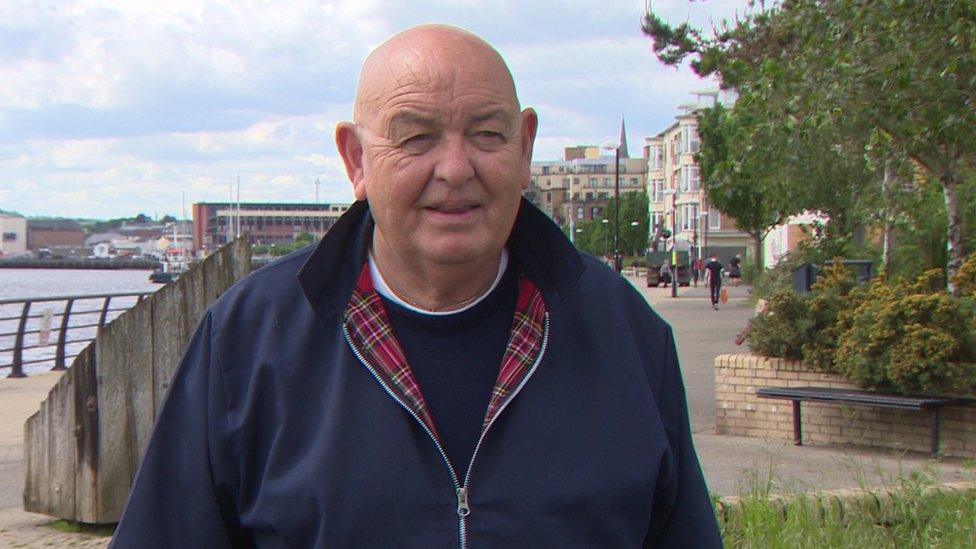
Jim Bradley said the stress of his work caused him to have a stroke
"I took a stroke due to the stress and the doctors confirmed that it was due to the work.
"Everywhere was closed, people were working from home and you were sitting for hours doing nothing.
"You just couldn't earn money. I am 66 now and am not going back. I wouldn't be fit health wise."
For those trying to enter the industry, things are just as difficult.
Jordan Poucher, 21, from Newry, County Down, had his practical taxi driving test delayed due to the pandemic and also struggled to pass the theory test, which took several attempts.
"The stuff they expect you to have in regards to mechanical knowledge is completely, in my view, unnecessary," he told Good Morning Ulster.
Mr Poucher eventually got theory marks he needed, and two weeks ago he also passed his practical test, but he still has several other requirements to fulfil before he can begin taking paying passengers, including 35 hours of periodic training, a medical and a criminal record check.
"Although yes, I've passed the two exams - we're probably talking the guts of 14 to 16 weeks, I'm told, to get everything else done."
Mr Poucher estimated that so far, he has spent up to £700 on test fees, extra lessons and other training costs and said he "can't see any incentive" for budding drivers to apply for their licence.
"It's just not worth it, in my view."

BBC News NI has been told that some drivers have found employment at delivery companies, supermarkets and within the construction industry.
Figures from the Department of Infrastructure show the number of registered taxi drivers has fallen from 9,590 in 2019/20 to 8,781 for the year 2020/21.
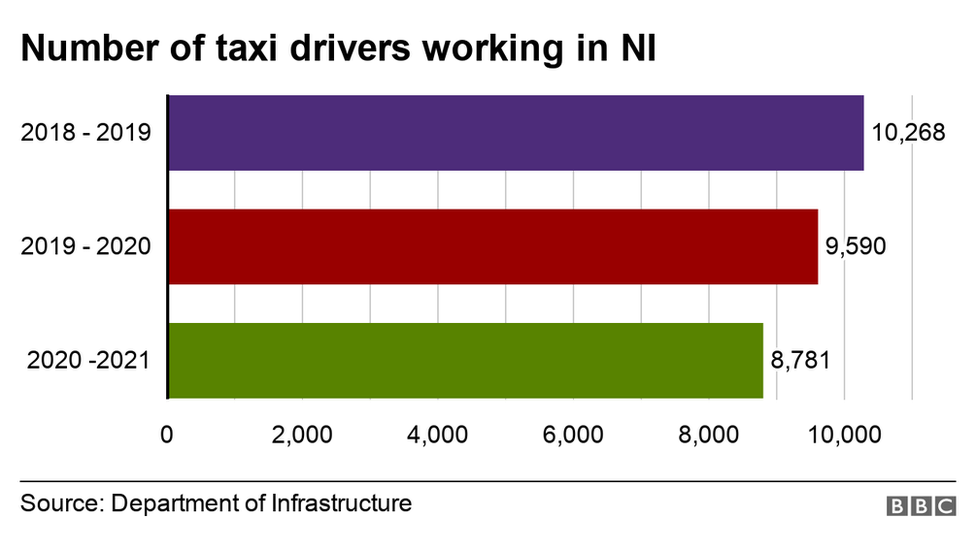
It is understood the number of working drivers could be lower than the number reflected in the latest figures.
A spokesperson for the department said the decline was likely to have been caused by the pandemic.
"There has been limited opportunity for first time applicants to apply for their taxi driver test due to Covid restrictions on driver testing.
"However, the Driver and Vehicle Agency (DVA) resumed practical driving tests and theory tests for all categories.
"In addition, some existing taxi drivers, whose taxi licence expired during this period, may have decided not to incur the cost of renewing their taxi driver's licence until the Covid restrictions were lifted."
The struggle to find drivers is not unique to large cities.
In Coleraine, County Londonderry, Royal Cabs owner William McDonald told BBC News NI his firm had lost a third of its drivers over the last 14 months.
'No new blood'
"We have nine people working for us at the moment. The other men found other work and have left the company," he said.
"The last few years there has been a shortage of taxi drivers and the pandemic hasn't made it easier.
"Now places are starting to open we certainly need more drivers and more cars on the road. The night work is picking up a little but the drivers aren't there.
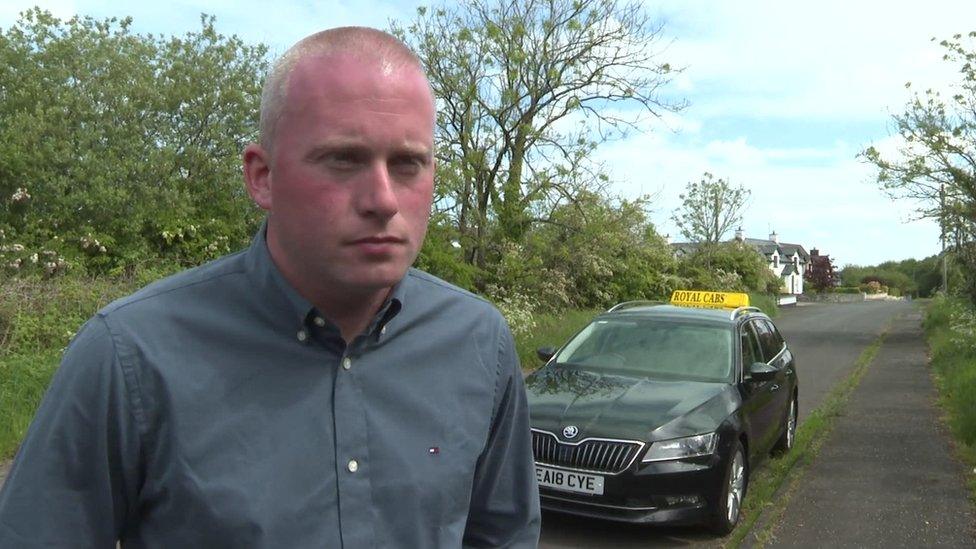
William McDonald says night work is picking up but drivers aren't there to meet the demand
"The last few years there has been a shortage of taxi drivers and the pandemic hasn't made it easier.
"Now places are starting to open we certainly need more drivers and more cars on the road. The night work is picking up a little but the drivers aren't there.
"Unfortunately you have to let customers down. It'll get to the stage where there won't be very many drivers out at night so anyone going out for drinks won't be able to get home in the later hours of the morning.
"Seventy per cent of my drivers would be over 60, it is the older population that seem to be taxi drivers. There is no new blood coming in.
"There is absolutely no doubt if things keep going the way they are going, in another five or 10 years there's not going to be any taxi drivers," he said.
Going home early
Many taxi operators are trying to hire new drivers but recruitment is being hampered by recent changes to the testing system, according to Eamonn O'Donnell, manager of North West Taxi Proprietors.
"We need a process at the minute that gets people into the taxi industry much quicker - the new system takes about six months to get a single person through," Mr O'Donnell told Good Morning Ulster.
"They've really made it much too difficult... the old system which worked for 30 years took about six to 10 weeks.
"Now, what we're asking for is for the minister to have a tactical suspension of the new system as part of a post-Covid recovery package for the taxi industry."
North Down assembly member Andrew Muir, who sits on Stormont's Infrastructure Committee, told Good Morning Ulster he had personal experience of late night taxi shortages.
"I know for myself, if I go out in Belfast on a Friday or Saturday night - my night comes to an end at eleven o'clock if I want to get back home to Bangor. Now, for many people, that's just not acceptable."
Mr Muir said taxi drivers and operators were "a key part of our economy" but argued they had not received enough support to stay in business during the pandemic.
"I feel in some ways that taxi drivers and the operators have been forgotten in relation to this, and people are now seeing the impact of that."
Related topics
- Published12 February 2021
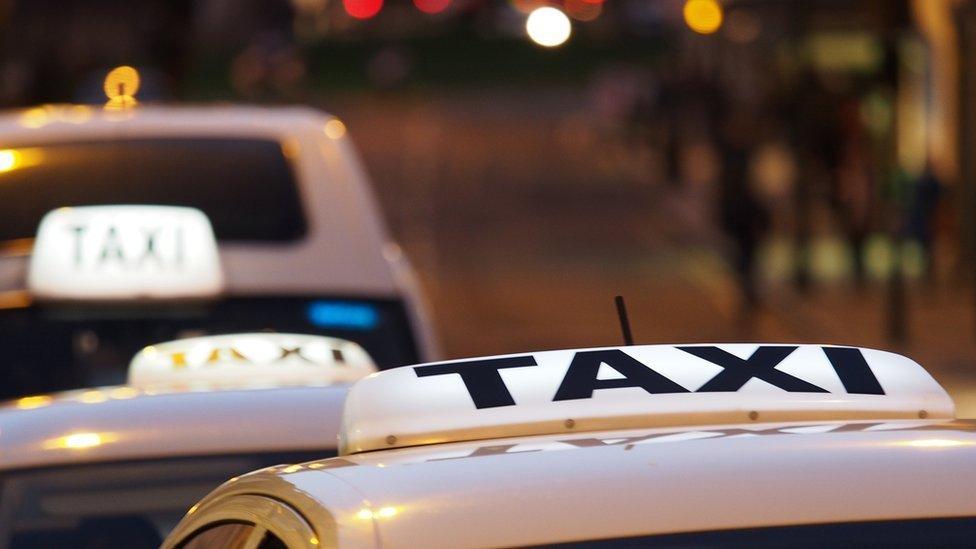
- Published9 December 2020
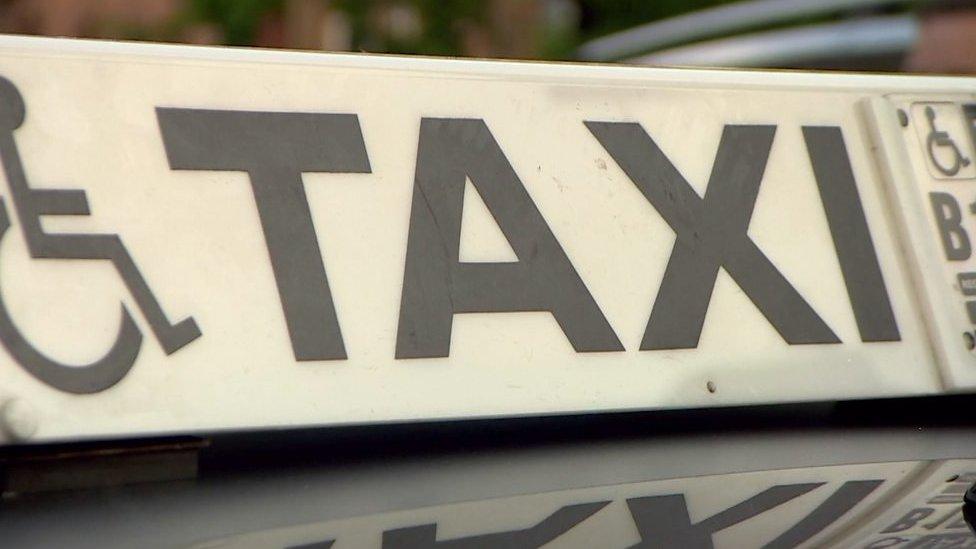
- Published24 October 2020

- Published17 June 2020
